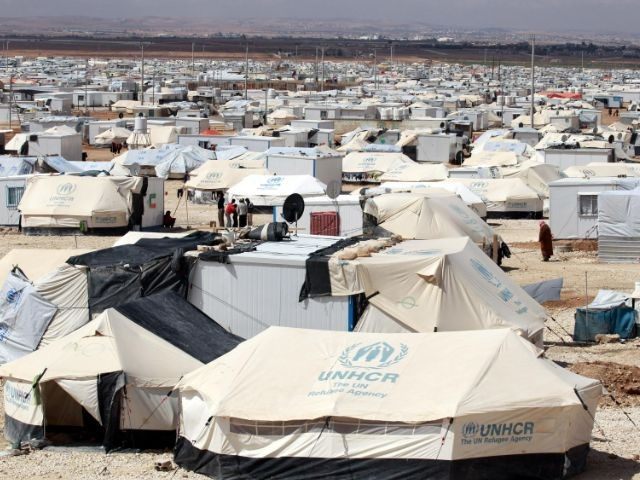Well so much for the new, inclusive, respectful of all views politics. If you don’t all parrot Corbyn you’re out…unless you’re too big to sack in an obvious fit of pique. Hilary Benn is no doubt on notice.
Two things about the BBC coverage…two very important and significant things.

One….where is any mention of Emily Thornberry, the new shadow secretary for defence, taking money from ‘thieving, ambulance chasing lawyers’?…as reported in the Telegraph...
Conservative MP Stewart Jackson said: “Will my Right Honourable Friend agree with me that it’s more than a matter of regret that the new shadow secretary of state for defence has seen fit to take a donation from the immoral, thieving and ambulance chasing lawyers Leigh Day, who together with public interest lawyers specialise in hounding our brave service personal in Iraq on spurious claims.”
As secretary for defence how can she possibly genuinely represent the forces when she is in the pay of lawyers who hound these same Forces personnel? Not a question the BBC asks or even makes reference as far as I can tell…here’s the very latest BBC report...not a mention….
The only changes in the shadow cabinet see anti-Trident MP Emily Thornberry replacing shadow defence secretary Maria Eagle, who moves to culture to replace sacked Michael Dugher.
Kevan Jones …..described Ms Thornberry’s appointment as a mistake, saying it left the party’s defence policy “controlled by the North London Labour party”.
In an interview with the British Forces Broadcasting Service, she said she had “quite a lot more experience” than people were giving her credit for, pointing out she had family members in the military and a “regiment in my constituency”.
Second omission from the BBC’s reporting is the very relevant and current concern about the ‘narrative’ that feeds into the Jihadist’s propaganda…that the West is to blame for radicalising Muslims with a war on Muslims….a narrative that now sacked Pat McFadden opposed.
Now why would the BBC miss that out of its reporting?…a narrative that the BBC itself has promoted more times than I care to count. Here’s the BBC’s reporting of Stephen Doughty’s resignation, done live on BBC TV…and yet they miss the crucial part of it……in fact despite having the video at the top of the page they don’t report any of his words on this matter saying merely that he was ‘singled out for punishment’….but why?…
Mr McFadden said Mr Corbyn had told him he thought his comments were “an attack on him and that he had come to the conclusion because of that and one or two other things that I shouldn’t continue”.
“He clearly feels that me saying terrorists are entirely responsible for their action, that no-one forces anyone to kill innocent people in Paris, to blow up the London Underground, to behead innocent aid workers, that when I say they are entirely responsible for that, he clearly interpreted that as an attack on him,” he added.
Shadow foreign minister Stephen Doughty – who announced his resignation on the BBC’s Daily Politics – said Mr McFadden had been “singled out for punishment for speaking with honesty and principle”.
They report that ‘terrorists are entirely responsible for their own actions’ but miss out the part that says it is unacceptable to blame the West….it’s a crucial point that plays into so many BBC narratives about the Iraq war, the rise of ISIS, the radicalisation of ‘Young British Muslims’ and who is responsible for the subsequent refugees…no wonder the BBC wants to downplay criticism of its narrative. The Guardian does report it…
However, he [Corbyn] decided to sack McFadden for what he saw as a variety of disloyal interventions, including a question to the prime minister in the House of Commons following the Paris atrocity.
McFadden asked David Cameron to reject the view that terrorist acts were always a response or a reaction to what the west did and to agree that such an approach risked infantilising terrorists when the truth was that they were adults who were entirely responsible for their actions.
Mcfadden finished the question with this…
“No one forces them to kill innocent people in Paris or Beirut and unless we are clear about that we will fail even to be able to understand the threat we face let alone confront it and ultimately overcome it.”
In other words the narrative of Corbyn, STW, Muslim fundamentalists and the BBC excuses terror and leads to a completely wrong-headed analysis and conclusion of cause and effect and hence the wrong solution…..ie the problem isn’t in the teachings and commands of Islam but in Western foreign policy…which must be changed to suit these terrorists and their sympathisers…..and note school exams are being changed to suit Muslims. Tail wagging dog? Terrorism really does pay off doesn’t it as politicians et al run scared.
The BBC wants to keep on blaming the Iraq War for all the ills of the Middle East and also make the West to blame for the current wars and refugee migration.
The BBC has a lot to lose if politicians can successfully counter the BBC narrative which is all too apparently more concerned for terrorists, immigrants and Muslim provocateurs than it is for British troops, British interests, the British people, culture and national identity and society.


 roger harrabin
roger harrabin 






